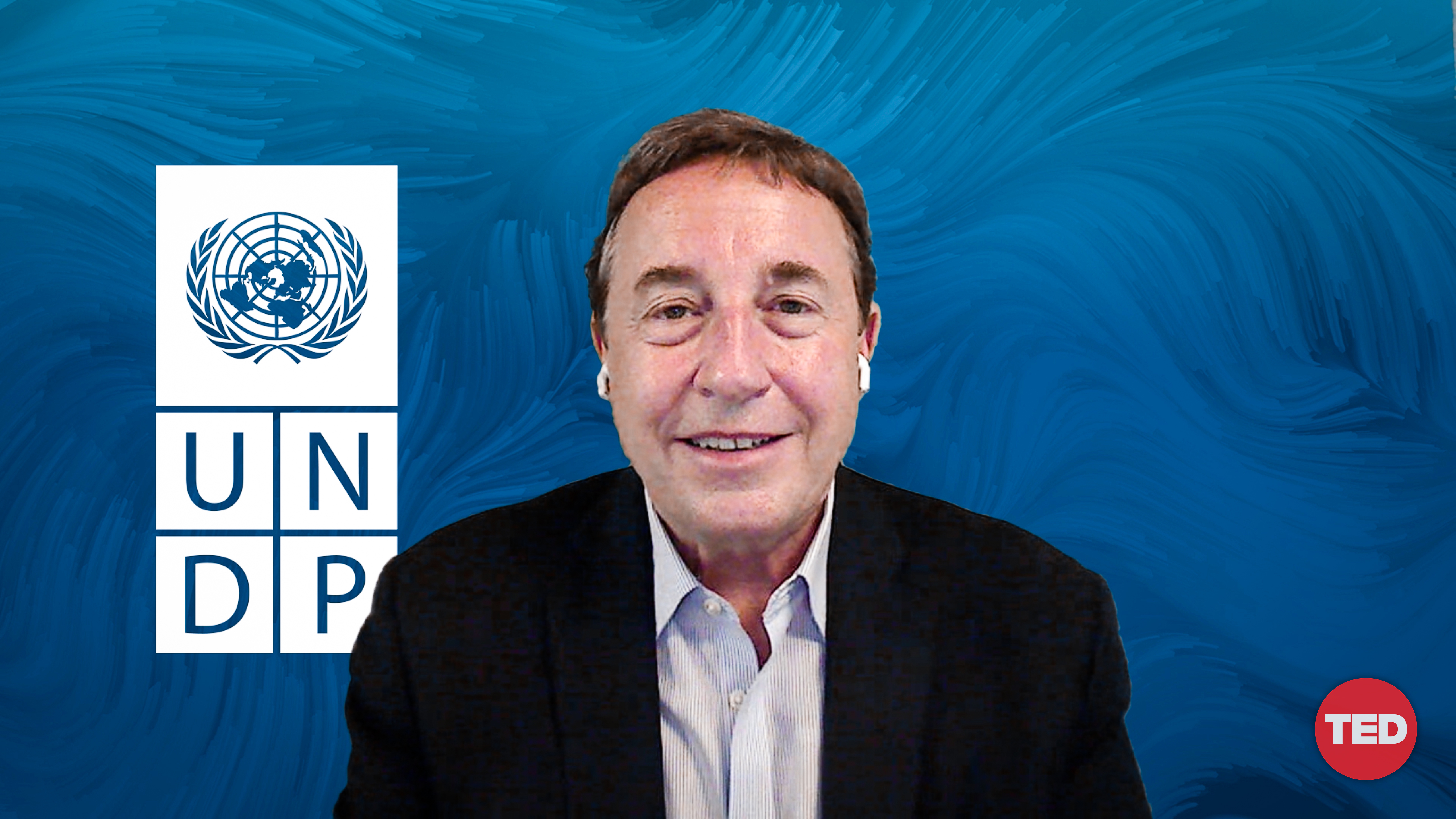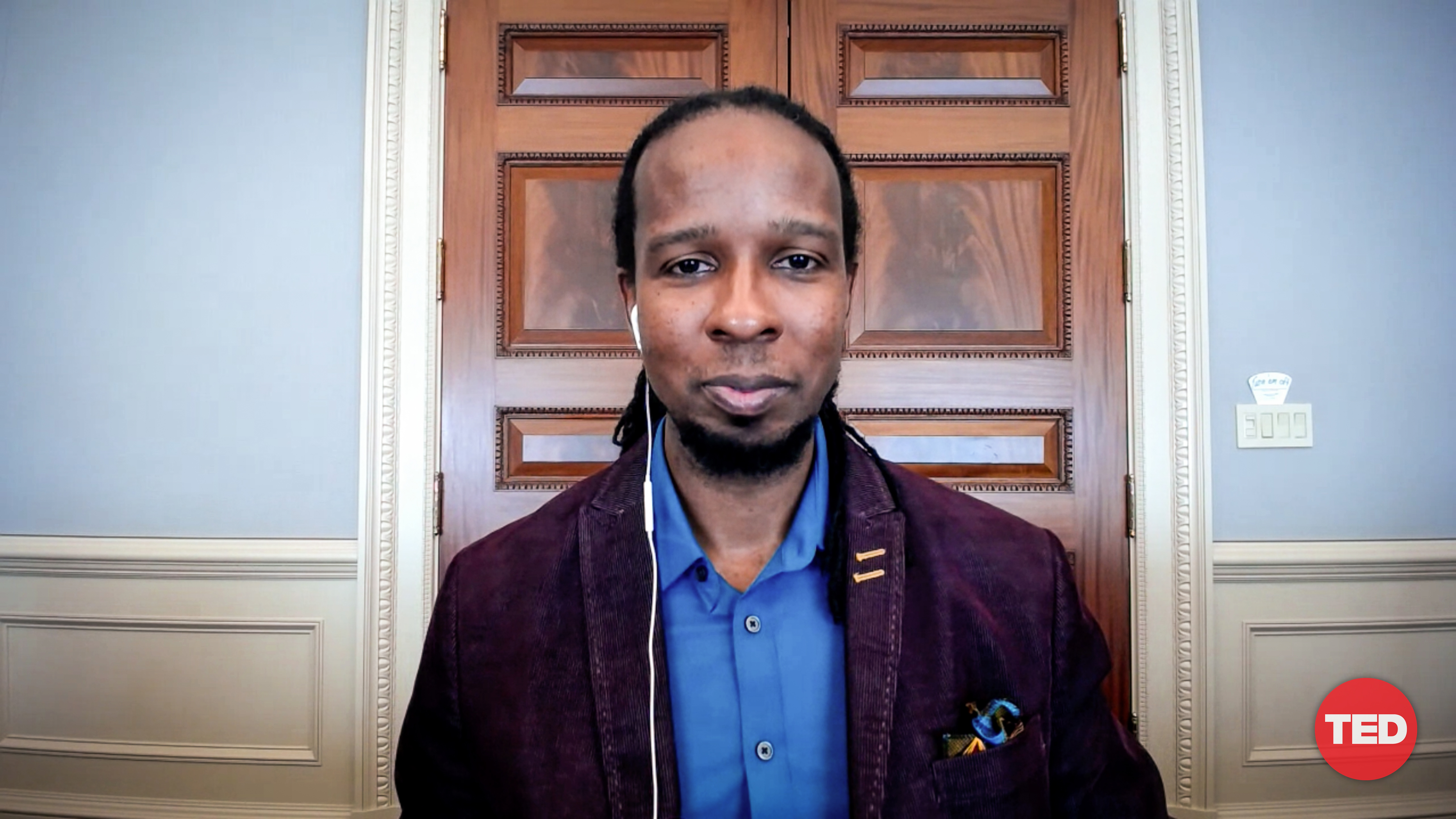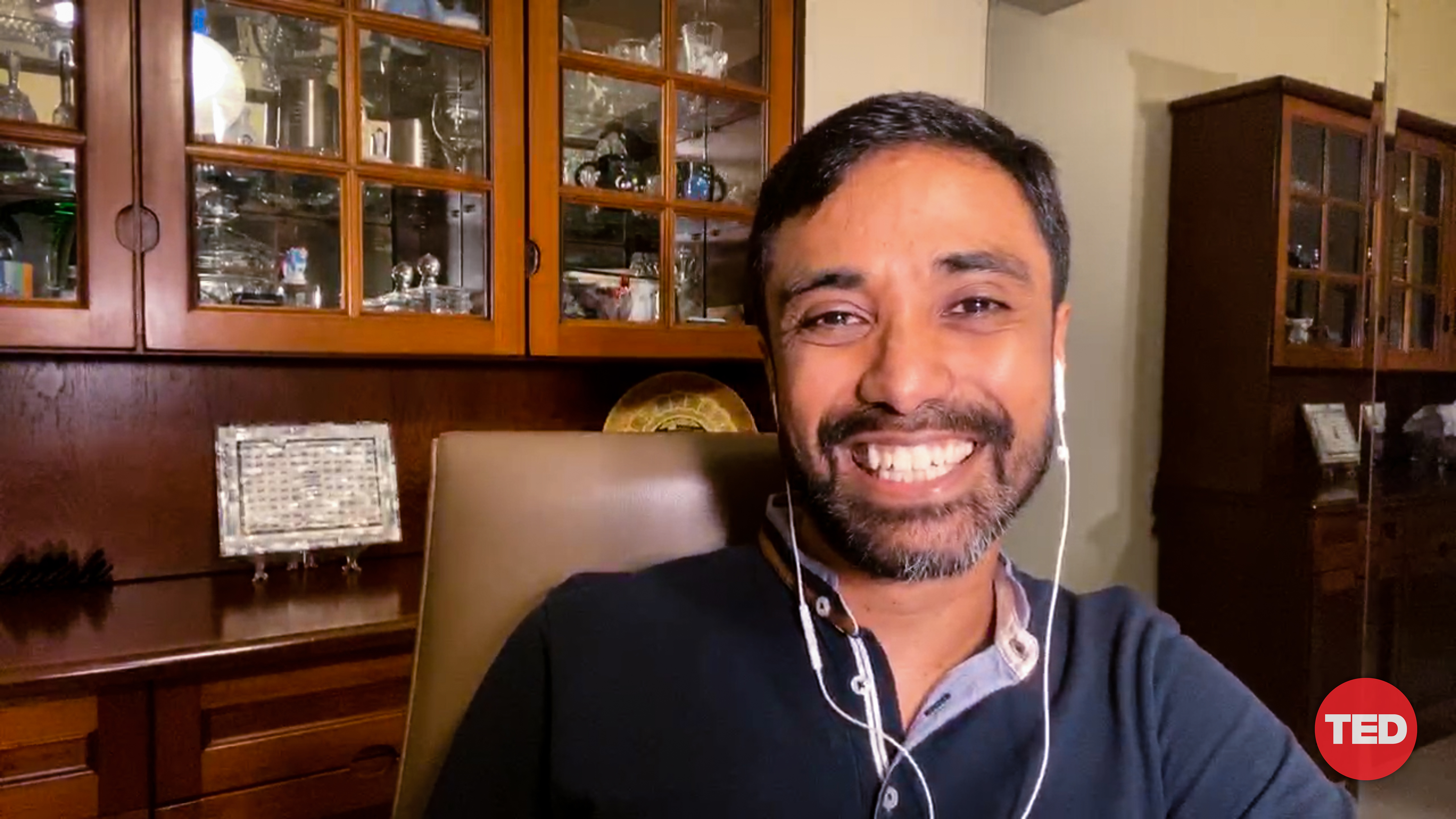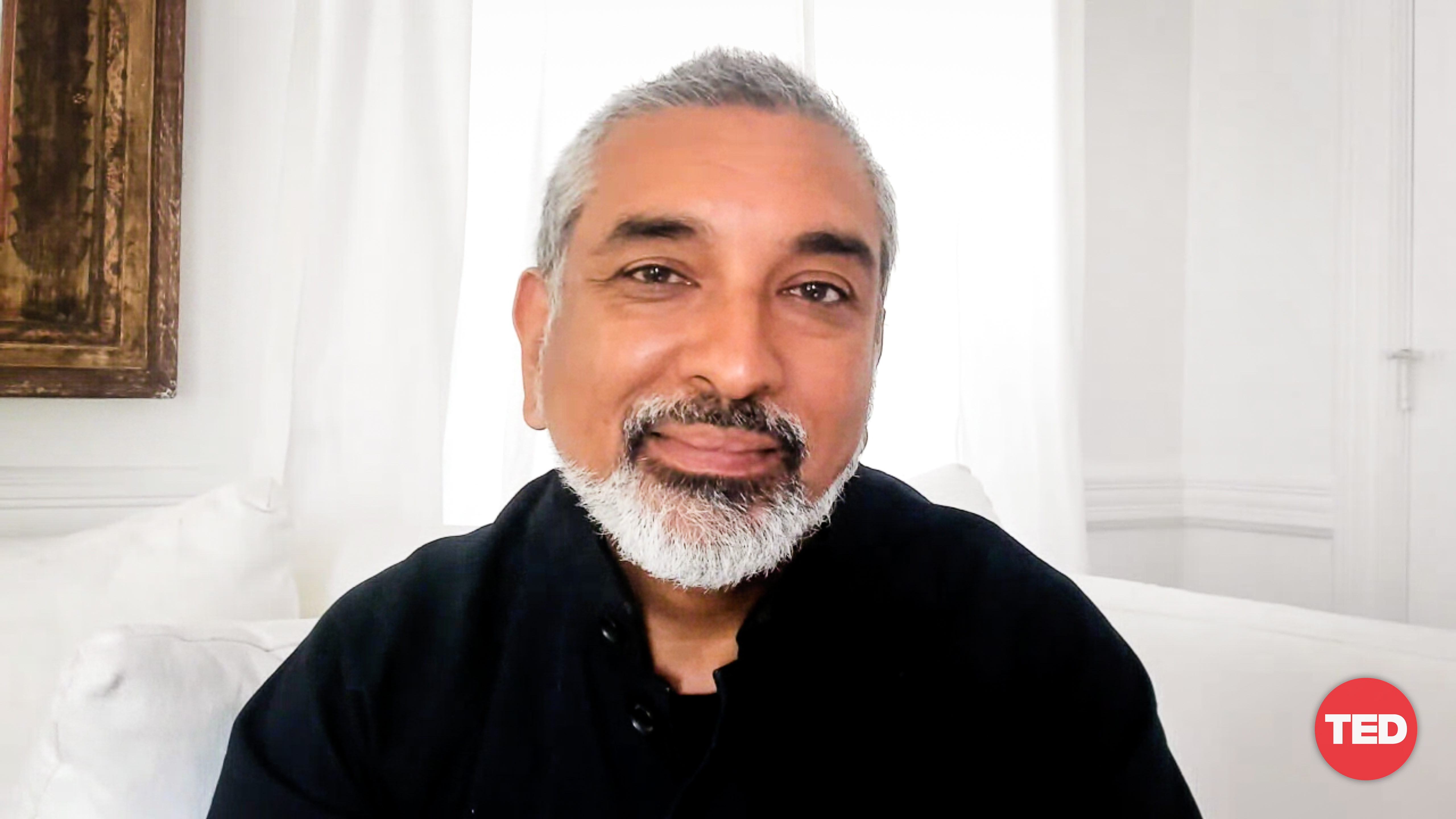For week 4 of TED2020, leaders in international development, history, architecture and public policy explored how we might rebuild during the COVID-19 pandemic and the ongoing protests against racial injustice in the United States. Below, a recap of their insights.

Achim Steiner, head of the UNDP, discusses how the COVID-19 pandemic is leading people to reexamine the future of society. He speaks at TED2020: Uncharted on June 8, 2020. (Photo courtesy of TED)
Achim Steiner, head of the United National Development Programme
Big idea: The public and private sectors must work together to rebuild communities and economies from the COVID-19 pandemic.
Why? When the coronavirus hit, many governments and organizations were unprepared and ill-equipped to respond effectively, says Achim Steiner. He details the ways the UNDP is partnering with both private companies and state governments to help developing countries rebuild, including delivering medicine and supplies, setting up Zoom accounts for governing bodies and building virus tracking systems. Now that countries are beginning to think broadly about life after COVID-19, Steiner says that widespread disenchantment with the state is leading people to question the future of society. They’re rethinking the relationship between the state and its citizens, the role of the private sector and the definition of a public good. He believes that CEOs and business leaders need to step forward and forge alliances with the public sector in order to address societal inequalities and shape the future of economies. “It is not that the state regulates all the problems and the private sector is essentially best off if it can just focus on its own shareholders or entrepreneurial success,” he says. “We need both.”

“The heartbeat of antiracism is confession,” says author and historian Ibram X. Kendi. He speaks at TED2020: Uncharted on June 9, 2020. (Photo courtesy of TED)
Ibram X. Kendi, Author and historian
Big idea: To create a more just society, we need to make antiracism part of our everyday lives.
How? There is no such thing as being “not racist,” says Ibram X. Kendi. He explains that an idea, behavior or policy is either racist (suggesting that any racial group is superior or inferior in any way) or antiracist (suggesting that the racial groups are equals in all their apparent differences). In this sense, “racist” isn’t a fixed identity — a bad, evil person — but rather a descriptive term, highlighting what someone is doing in a particular moment. Anyone can be racist or antiracist; the difference is found in how we choose to see ourselves and others. Antiracism is vulnerable work, Kendi says, and it requires persistent self-awareness, self-examination and self-criticism, grounded in a willingness to concede your privileges and admit when you’re wrong. As we learn to more clearly recognize, take responsibility for and reject prejudices in our public policies, workplaces and personal beliefs, we can actively use this awareness to uproot injustice and inequality in the world — and replace it with love. “The heartbeat of racism itself has always been denial,” he says. “The heartbeat of antiracism is confession.” Watch the full discussion on TED.com.

What’s the connection between poetry and policy? Aaron Maniam explains at TED2020: Uncharted on June 10, 2020. (Photo courtesy of TED)
Aaron Maniam, Poet and policymaker
Big idea: By crafting a range of imaginative, interlocking metaphors, we can better understand COVID-19, its real-time impacts and how the pandemic continues to change our world.
How? As a poet and a policymaker in Singapore, Maniam knows the importance of language to capture and evoke the state of the world — and to envision our future. As people across the world share their stories of the pandemic’s impact, a number of leading metaphors have emerged. In one lens, humanity has “declared war” on COVID-19 — but that angle erases any positive effects of the pandemic, like how many have been able to spend more time with loved ones. In another lens, COVID-19 has been a global “journey” — but that perspective can simplify the way class, race and location severely impact how people move through this time. Maniam offers another lens: that the pandemic has introduced a new, constantly evolving “ecology” to the world, irrevocably changing how we live on local, national and global levels. But even the ecology metaphor doesn’t quite encompass the entirety of this era, he admits. Maniam instead encourages us to examine and reflect on the pandemic across a number of angles, noting that none of these lenses, or any others, are mutually exclusive. Our individual and collective experiences of this unprecedented time deserve to be told and remembered in expansive, robust and inclusive ways. “Each of us is never going to have a monopoly on truth,” he says. “We have to value the diversity that others bring by recognizing their identity diversity … and their competent diversity — the importance of people coming from disciplines like engineering, history, public health, etc. — all contributing to a much richer understanding and totality of the situation we’re in.”

Vishaan Chakrabarti explores how the coronavirus pandemic might reshape life in cities. He speaks at TED2020: Uncharted on June 10, 2020. (Photo courtesy of TED)
Vishaan Chakrabarti, Architect
Big idea: Cities are facing a crisis of inequity and a crisis in health. To recover and heal, we need to plan our urban areas around inclusion and equality.
How? In order to implement a new urban agenda rooted in equity, Vishaan Chakrabarti says that we need to consider three components: affordable housing and accessible health care; sustainable urban mobility; and attainable social and cultural resources. Chakrabarti shatters the false narrative of having to choose between an impoverished city or a prosperous one, instead envisioning one whose urban fabric is diverse with reformed housing policies and budgets. “Housing is health,” he says. “You cannot have a healthy society if people are under housing stress or have homelessness.” With a third of public space dedicated to private cars in many cities, Chakrabarti points to the massive opportunity we have to dedicate more space to socially distanced ways to commute and ecologically conscious modes of transportation, like walking or biking. We will need to go directly to communities and ask what their needs are to build inclusive, eco-friendly and scalable solutions. “We need a new narrative of generosity, not austerity,” he says.